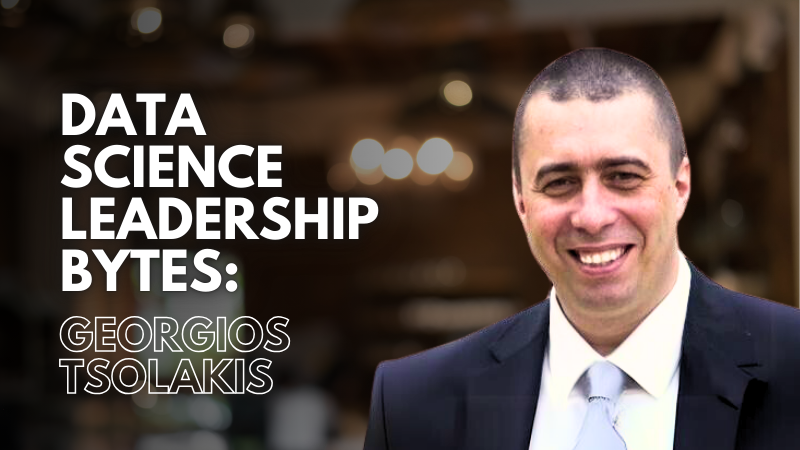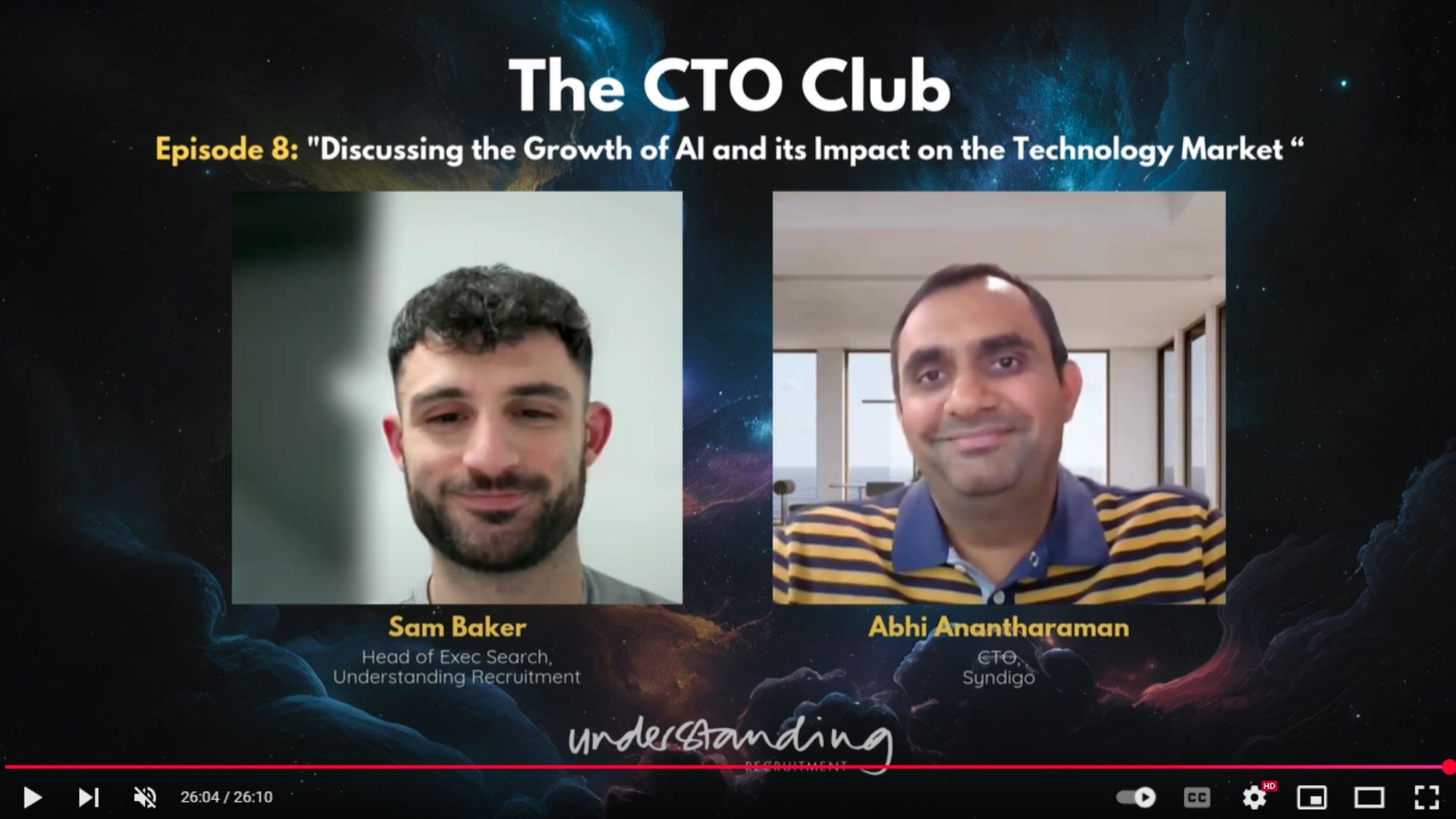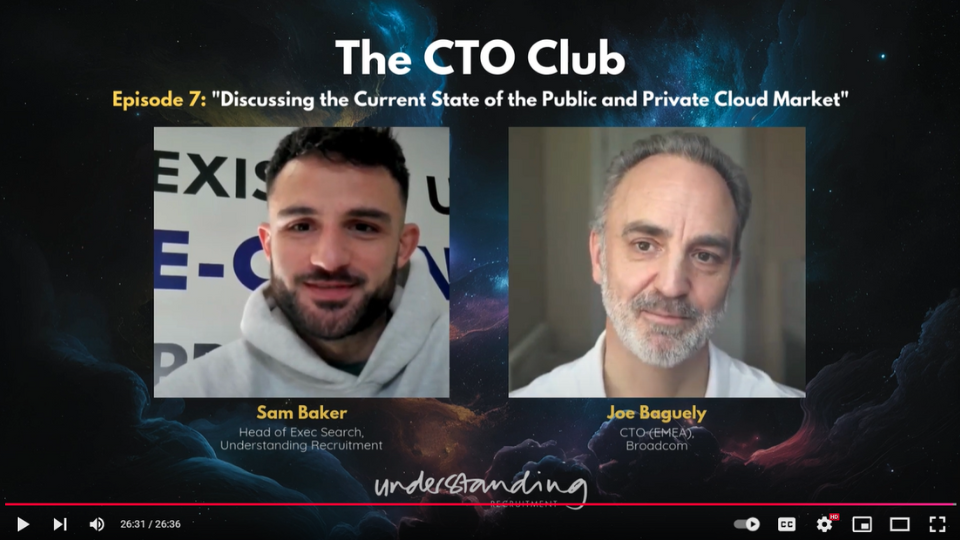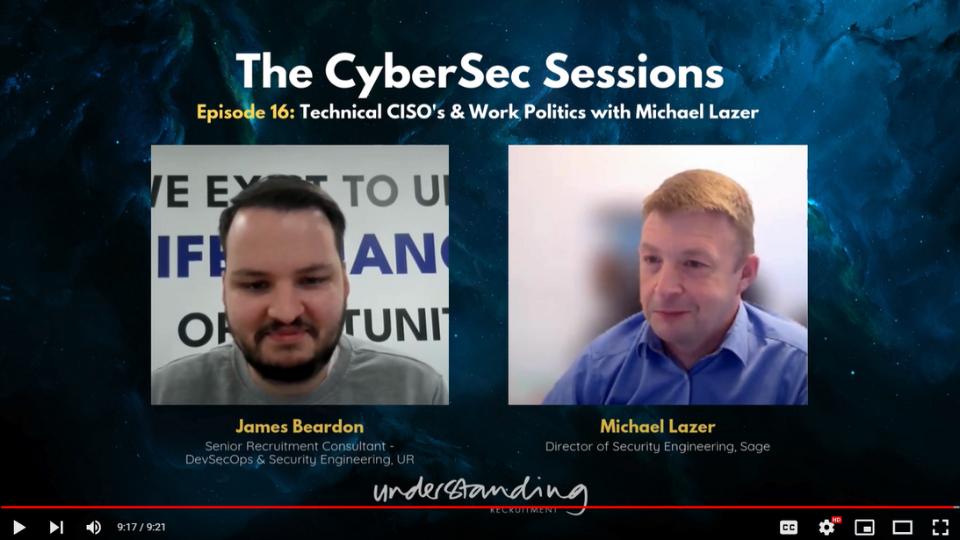Data Science Leadership Bytes: In Conversation With Georgios Tsolakis
9th May, 2024 5 min
In our third instalment of the Data Science: Leadership Bytes series, we feature Georgios Tsolakis, Head of Data Science at Evri.
His journey from an early fascination with computers to navigating the complexities of the corporate world reflects his personal growth and contributes significantly to his nuanced understanding of the field.
Want to know more about his journey? Keep reading!
What attracted you to a career in Data Science?
I was attracted to computers from a very young age. I was 10 years old when one day my Dad came home and said they got computers at work to which I said, “What’s a computer?”. “It’s the brain of robots”, he explained. This kicked off my interest; I started learning programming at the age of 11, I was doing lots of software engineering, and I even sold my first software when I was about 14.
AI always fascinated me and was my goal from early on. I came to study Computer Science in the UK back in the 90's at Brunel, where “the godfather of artificial intelligence”, Igor Aleksander, was teaching. I was always interested in how we make computers smarter and how we make them do things on their own without too many instructions.
What would you say has been the most transformative moment in your career to date?
A particularly impactful moment in my career would be when I stepped outside IT and programming, and focused on the business area. I was on a project in Greece with Vodafone and they had a vacancy open for someone to have a business analytics focus on retaining customers. I learnt a lot about how businesses operate and achieve better outcomes through better decision-making. Through this, I also learned about politics and the corporate world. To be a well-rounded Data Scientist, you need to have this experience to help you understand how to better sell your algorithms. It tends to be one of the more difficult things to acquire and you tend to get this experience by proxy.
I would also say, the moment I realised I was not “the best” was important. You think you’re a great data scientist and then you meet someone who is better than you and it humbles you. I’ve done a lot of reading on the Dunning Kruger curve which is an observation that confidence doesn’t really go in line with competence. It was a big insight for me and I realised you can never be 100% confident, there's always room for learning more and more.
What are the biggest challenges facing Data Scientists currently?
Knowing that you don’t know everything and being okay with it. Accept that you’re going to be wrong and that you have a lot to learn. Prepare yourself and your environment so that you can manage failure and success.
There are loads of challenges these days but for me, it starts in university. In the DS courses you get taught about algorithms but usually miss out on all the business and data experience. Data Science has three pillars: business knowledge, algorithms/stats and Data. With the emergence of AI, AI can help do a lot of the algo/stats for you, but if you don’t have the business knowledge, you may struggle moving forward. How can you get this knowledge? I’d recommend putting yourself forward to talk to customers and really put in some effort to understand your stakeholders’ needs. It may be out of your comfort zone and a bit more work to start with but it’s worth it.
What excites you most about the future of Data Science and AI?
Well, it excites me and it scares me. I didn't expect what happened a couple of years back with ChatGPT. I was using the technology that ChatGPT employs, (Transformers), for natural language processing mostly and for fun, but when ChatGPT came out I was wowed. It’s the equivalent of the invention of the calculator for me. But rather than arithmetic, it is basically a knowledge calculator. I'm looking forward for me and everyone, to having this knowledge calculator running on our phones rather than on the cloud where costs are massive. I am also excited about it getting smarter and smarter and more factually correct.
Looking back on your career, is there any advice to yourself that you’d give to yourself now or someone else starting out?
Don’t be too cocky! You never really learn 100% of anything in Data Science, there are always more things to learn. Really focus on the learning process rather than just the knowledge. I know knowledge is needed as well, but I personally focus more on how people acquire knowledge rather than what knowledge they already have. So, I advise young people to learn how to learn, and learn how to research. In my position now, when hiring people, I look for someone that I can learn from and vice versa.
What skills are important for leaders?
I would split leadership into two categories. One is leadership and the other is management. A lot of people think of leadership and management as the same thing i.e. you lead a team. But you can be a leader without a team, for example you can be a thought leader.
If you want to lead, you need to be ready to step into it when the opportunity comes. It’s a matter of confidence but not overconfidence as that can lead to some errors. Trust the data. Learn about cognitive biases. Maybe study a bit of psychology because it will help you understand how people make decisions. Data science is all about decisions.
Imagine what a good leader is to you and be that. I was lucky I had the opportunity to work under some great people, but I was also lucky enough to work with some not-so-great people. I learnt what to do from the former and what not to do from the latter.
Look for an environment that gives you the opportunity to lead. Something we’ve implemented in our teams is a framework to give the opportunity for more junior members of the team to take the lead in a team of their own. We let them lead virtual teams for Data Science topics, which gives them the opportunity to lead in a safe environment.
Finally, you need to have the skills to inspire others, especially if you want to be a leader rather than a manager. Being a manager is all about processes, and getting people to do what they’re supposed to. It’s a bit easier to be a manager, but a leader is more about being an example for people. “I want to be like her”, “I want to be like him”.
Bonus Question: What is your number one interview tip?
Be yourself. Prepare questions for your interviewer. Research the business you are interviewing for. Try and gage in advance the problems that you’re going to be required to solve. Don’t just focus on the technical stuff. And be passionate!
If you're looking for exceptional talent in data science or seeking exciting career opportunities, our dedicated Data Science recruitment team is here to help. We connect businesses with skilled professionals and offer a platform for individuals to explore promising roles in data science. Whether you're hiring, browsing job listings, or interested in being featured in our blog series, we're here to support your journey in the world of data science. Contact us today to learn more!



